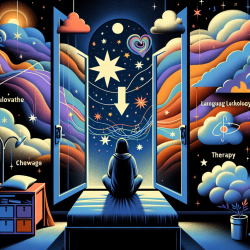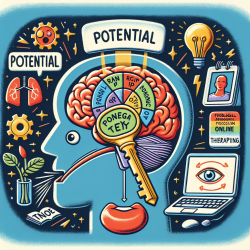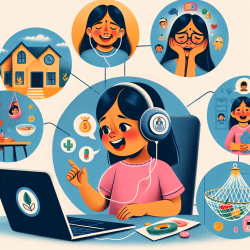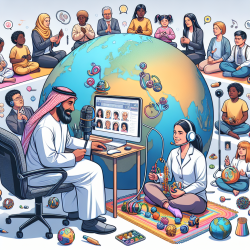Introduction
The COVID-19 pandemic has undeniably reshaped our lives, affecting not only our daily routines but also our mental health. As practitioners dedicated to improving outcomes for children, understanding the nuances of these changes is crucial. A recent study titled Stuck in a lockdown: Dreams, bad dreams, nightmares, and their relationship to stress, depression and anxiety during the COVID-19 pandemic offers valuable insights into how our dream lives are intertwined with mental health indicators like stress, depression, and anxiety.
Understanding the Study
The study surveyed 968 participants during the first COVID-19 lockdown, exploring changes in dream recall and themes. It found that 34% of participants experienced increased dream recall, with themes such as inefficacy, human threat, death, and pandemic imagery being prevalent. These themes were significantly associated with higher levels of stress, depression, and anxiety.
Implications for Practitioners
For practitioners, these findings underscore the importance of considering dream content as a potential indicator of mental health. Here are some ways to apply these insights:
- Integrate Dream Analysis: Encourage children to discuss their dreams as part of therapy sessions. This can provide a non-threatening way to explore underlying stressors and anxieties.
- Monitor Changes in Dream Patterns: Be attentive to changes in dream recall or themes, as these could signal shifts in a child's mental health status.
- Educate Parents: Inform parents about the potential significance of dreams, empowering them to support their children in processing their experiences.
Encouraging Further Research
While the study provides a foundation, further research is needed to explore the specific mechanisms linking dreams to mental health. Practitioners are encouraged to contribute to this growing field by documenting their observations and experiences, potentially collaborating with researchers to deepen our understanding.
Conclusion
The relationship between dreams and mental health during the COVID-19 pandemic offers a unique lens through which to view the psychological impacts of global crises. By integrating these insights into practice, we can better support children in navigating their emotional landscapes, fostering resilience and well-being.
To read the original research paper, please follow this link: Stuck in a lockdown: Dreams, bad dreams, nightmares, and their relationship to stress, depression and anxiety during the COVID-19 pandemic.










